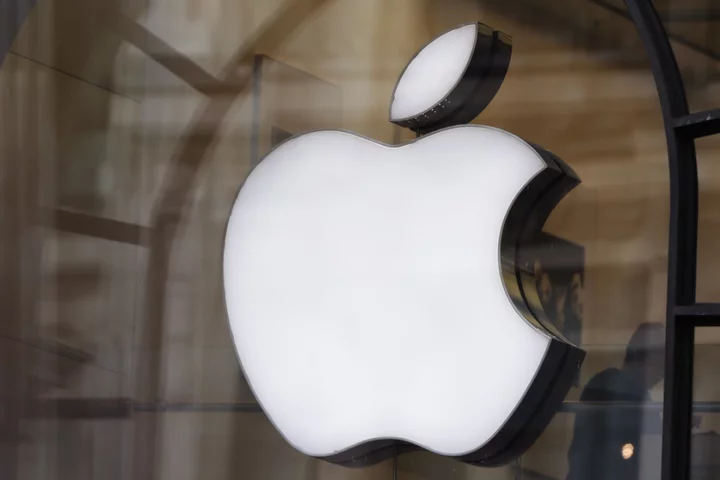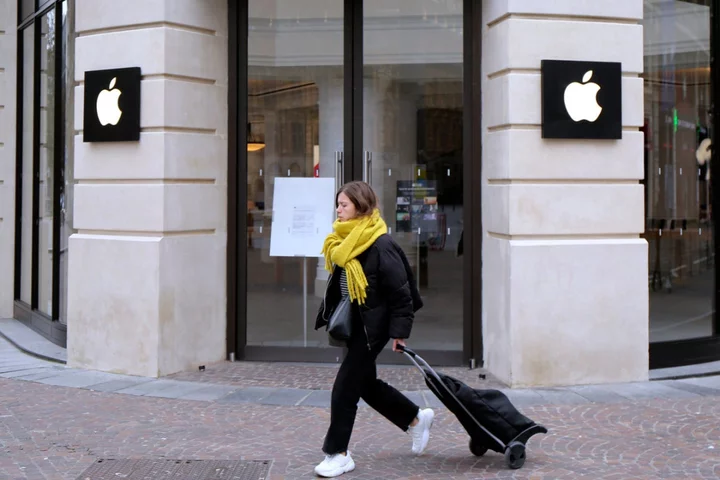A legal expert at Europe’s top court has said a lower court committed “errors in law” when it threw out a decision by the European Commission which would force Apple to pay more than 13 billion euro in back taxes to Ireland.
The non-binding opinion is seen as a significant setback to Ireland’s defence of its past tax treatment of the US technology giant.
In 2016, following an EU investigation which launched in 2014, the commission concluded that Ireland gave undue tax benefits to Apple, which would be illegal under EU state aid rules.
Ireland and Apple fought the commission on the matter and in July 2020, the General Court of the European Union annulled the decision.
However, the European Commission subsequently appealed against the decision to the European Court of Justice (CJEU) saying the lower court’s ruling was legally incorrect.
On Thursday, Giovanni Pitruzzella, an advocate general at the CJEU, agreed that the earlier ruling had contained “a series of errors in law”.
He said the judgment should be set aside and referred the case back to the General Court for a new decision.
While the opinion of the advocate general is non-binding, it is usually followed by the court and therefore could have significant implications for corporation tax bills.
There was no sweetheart deal
Finance Minister Michael McGrathThe commission’s original position was that that tax rulings issued by Ireland to Apple in 1991 and 2007 substantially and artificially lowered the tax paid by the iPhone manufacturer in the country since the early 90s, in a way which did not correspond to economic reality.
As a result, competition commissioner Margrethe Vestager said Ireland had granted illegal tax benefits which enabled it to pay substantially less tax than other business over many years.
The investigation found that Apple had paid an effective corporate tax rate of 1% on its European profits in 2003, down to 0.005% in 2014, 50 euro for every one million euro of profit.
The process involved recording almost all sales profits of two Irish incorporated companies, which the commission said only existed on paper.
The companies, fully owned by Apple, held the rights to use the firm’s intellectual property to manufacture and sell its products outside North and South America.
The commission said this situation allowed Apple to avoid taxation on almost all profits generated by sales of its products in the entire EU single market.
It said this was due to Apple’s decision to record all sales in Ireland rather than in the countries where the products were sold.
The findings were disputed by the Irish State, which said all tax owed had been collected, and Apple, which had come under scrutiny in the US for its tax practices years earlier.
At the time, Apple’s chief executive, Tim Cook, branded the EU findings as “political crap”, maddening and untrue.
The Irish Government, which was also used to defending a comparatively low 12.5% corporation tax rate, said Europe had overstepped the mark in attempting to dictate tax laws and enforce retrospective taxes decades later.
Ireland and Apple fought the commission on the matter and in July 2020, the General Court of the European Union annulled the decision.
The General Court found that the commission had not shown that there was an advantage deriving from the adoption of the tax rulings.
However, the commission subsequently appealed the decision to the European Court of Justice with Ms Vestager saying the lower court’s ruling contained errors of law.
On Thursday, the advocate general agreed the General Court had erred when it ruled that the Commission had not shown to the requisite legal standard that the intellectual property licences held by the two incorporated companies and related profits, generated by the sales of Apple products outside the US, had to be attributed for tax purposes to the Irish branches.
The advocate general was of the view that the General Court also failed to assess correctly the substance and consequences of certain methodological errors that, according to the Commission decision, “vitiated the tax rulings”.
It is the non-binding opinion of Mr Pitruzzella that it is necessary for the General Court to carry out a new assessment.
The decision of the CJEU on the matter is expected next year and will have significant implications for how member states grant tax breaks to major firms.
Apple has argued it has been paying tax on the profits in question in the US, while Ireland has seen it necessary to defend its reputation on taxation issues to protect foreign direct investment.
Last weekend, Finance Minister Michael McGrath had said the advocate general’s opinion would be “significant” but added it is not the final step in the process.
Mr McGrath said: “We are confident in our position in respect of the Apple case.
“We take encouragement from the findings they have made so far, but it is a significant day.”
He added: “There was no sweetheart deal.
“This was the application of Ireland’s statutory corporation tax code.”
In the interim, the 13.1 billion euro has been held in an escrow fund pending the outcome of the case.
The money, with interest, is due to be entered into the Irish exchequer if the commission wins the case.
However, other member states may make claims that they are owed some of the money.
If the commission loses the appeal, the large sum will be returned to Apple.
Read MoreSmartphones ‘may be able to detect how drunk a person is with 98% accuracy’
Ireland and Apple await major development in long-running EU tax dispute
Guidance urges parents not to buy smartphones for primary school children
William ‘blown away’ by futuristic technology from Singapore start-ups
Return of original Fortnite map causes record traffic on Virgin Media O2 network
NatWest creates new AI-powered chatbot capable of ‘human-like’ conversations









